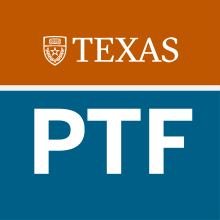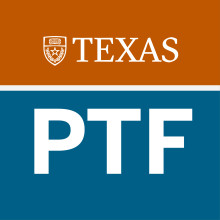Individual Fellow Initiatives

Does Increasing Course Depth While Reducing Breadth Improve Learning in College Students?
Student-centered learning strategies have been effectively used to increase academic performance and learning in students. Educators have hypothesized that course content reduction can also improve student learning. However, support for this idea is lacking. In the present project, I am planning to assess whether a content reduction strategy increases the academic performance of upper-division stem students at the University of Texas-Austin.

SafeTeach Collaborative
The SafeTeach Collaborative is a learning community that aims to improve faculty and graduate students' ability to handle classroom safety issues by developing their knowledge, self-efficacy, and instructional strategies. The program utilizes interactive methods including role-play exercises, scenario-based learning, and case study analyses to engage participants in realistic safety situations. The project's design fosters peer support networks, ideally providing participants with ongoing resources for addressing safety concerns.

QR Learning for addressing social and racial injustice
The current proposal envisions developing alternative pedagogical materials for the “Measuring Racial Inequality” course, written in plain language and accessible to students from social sciences/humanities and underserved communities and families.

Disability Justice as Pedagogical Practice
Within social work curriculum, the topic of disability is either explicitly absent or medicalized. The lack of a rich understanding of disability as a cultural experience that intersects with other cultural experiences is concerning given our ethical guidelines of cultural competence and equity. Additionally, not only are students excluded via this omission, but so are faculty, staff, and social workers working in the field. Approximately a quarter of the population identifies as having a disability, yet our curriculum barely acknowledges their experiences.

Compassionate Pedagogy and Experiential Learning
The primary goal of this project is to enhance student engagement and participation in the learning environment, especially those who have may have been marginalized by conventional approaches to teaching. This project aims to support, encourage, and train faculty to incorporate compassionate pedagogy (CP) and experiential learning (EL) into their teaching, with the goal of promoting student connection and faculty creativity.

Mentored 2 Mentor
This project focuses on training Clinical Audiology Doctoral students (AuD) to be clinically certified supervisors upon entering the field post-graduation. According to the American Speech-Hearing Association (ASHA), Texas ranks 48 out of 50 states for the number of clinically certified audiologists who are needed to supervise doctoral students in order for those students to have ASHA-approved hours (https://www.asha.org/siteassets/surveys/audiologist-and-slp-to-populati…).

Offering Real-World Opportunities for Students Enrolled in Statistics and Data Science Undergraduate Research
The primary goal of this community-based service project is to provide experiential learning opportunities for undergraduates interested in statistics and data sciences while supporting the broader Austin-area community. Coordinating with local organizations, students enrolled in some of our SDS courses are gaining hands-on experience in data analysis while exploring authentic contexts. This innovative and collaborative effort provides a community-based model that allows students and local organizations to co-develop and answer real-world research questions.

Teaching Engineering through Murder Mysteries and Personalized AI Tutor
CE 357: Introduction to Geotechnical Engineering is a third year required undergraduate course that has traditionally been a challenging course for students due to its abstract nature. The average course rating for CE 357 is 3.8 in the last twenty years. I have successfully transformed the lecture modules to achieve a significant increase in interest and students’ performance in the course. Although preliminary work looks promising, I want to scientifically evaluate the effectiveness of the course and publish the findings.

Teaching Law and Religion
The aim of my proposed project is then the integration of the seemingly disparate studies of law and
religion. The study of both is an important branch of comparative law and global legal history that I aim

Strengthening the Sustainability Studies Degree
Sustainability Studies graduated its first sizeable cohort in 2022, and the program has yet to undergo a comprehensive review. Conversations with students revealed their desire for better access to the professional field of sustainability across the sectors of non-profit, government, and business. This is an area that the current structure of the degree does not adequately address. To address these concerns, I am proposing a three-pronged approach. My first initiative is to build a database of internships across the three sectors mentioned above.

Undergraduate Survey Research in Interpersonal Health Communication
Each semester in CMS 330:Interpersonal Health Communication, students ask excellent questions that have not been answered yet in the academic literature. My project proposal is to give students the opportunity to collect high-quality survey data that would help students answer their questions. Students would create interpersonal health communication survey that would be administered by a research company to gather nationally representative data on important health communication topics that have currently been unexamined.

The Collaboratory: Interdisciplinary, Arts-based Pedagogy for Use in New and Emerging Learning Environments
One of the top concerns from many employers is that college graduates lack the “soft skills” (collaboration, team-based skills)and professionalism they require. Collaboratory students will have the opportunity to master the latest skills in their field and develop “soft skills” like creative problem-solving problem solving and communication to help them thrive over the course of their careers.

McCombs Student Journal
The McCombs Business Journal was an effort to give students an opportunity to read and write about research. We recruited students, worked with the students to establish an organizational structure, set expectations for members, and selected student leaders. Students read a significant amount of research and wrote summaries, focusing on how that research impacts the real world.

Peer Learning Assistant Program Guidelines and Curricula
The Peer Learning Assistant Program within the Department of Chemistry is a program developed with resources from the Provost Teaching Fellows program to enhance the educational experience of students taking general chemistry by training and employing Peer Learning Assistants (PLAs) to service large blended general chemistry courses. The large (300 –500 students) blended courses have replaced the straight lecture model with active, student centered, learning. Active learning requires coaching and in a large class it is impossible to implement with only one instructor and one tea

Bevosourcing: Tools to Involve Students in Citizen Science and Online Data Publication
Digital archives and the internet have made it possible for non-experts to make major contributions to research through crowdsourcing and citizen science. UT has fascinating and important collections of primary sources for the humanities, many of which have been digitized. But before my PTF project, there were no digital tools at UT to facilitate crowdsourcing as a pedagogical strategy, engaging students with historical documents while enriching the collections themselves. The project therefore proposed to develop two UT-based crowdsourcing platforms.

Animals, Sustainability, and the Environment: A Service Learning Model for the Humanities
This project has provided my students with an experience in hands-on service learning, thus fostering a synergistic understanding of historical analysis and community engagement. “Animals and American Culture: Select Historical Perspectives” is an interdisciplinary upper-division undergraduate seminar that attracts a diverse student body in the liberal arts and natural sciences. During the first week of class, students are required to contact one of two local organizations--or, with my permission, an organization of their own choosing.

Nutrition in the Kitchen
Compounding the challenge of consuming a healthy diet is the fact that many students have little or no familiarity with preparing their own food. The result is inadequate diets that do not support optimal health and academic performance.

Clinical Advancement in Simulated Environments
Among the communication disorders considered to be fundamental to the scope of practice for speech-language pathologists, stuttering or what is also commonly referred to as a fluency disorder has historically been and continues to be the disorder for which most speech-language pathologists report minimal to no clinical or academic exposure and/or competency.

Freshman Introduction to Research in Engineering (FIRE)
The goal of this initiative is to establish a freshman research program for mechanical engineering students that can serve as a template for an engineering-wide freshman research program. Many first-year students express an interest in participating in engineering research early in their college careers, but the perceived barriers can be high. It can be difficult for first-year students to navigate the research enterprise, and many professors are hesitant to hire first-year students. The potential advantages of freshman research, however, are much greater than the barriers

Dynamic Practice and Assessment System for Statistics Course(s)
Mastery of the use and interpretation of statistical techniques requires a lot of practice. Similarly, statistics is only mastered with a lot of practice. However, instructors unfortunately only have a finite amount of time available to create an endless supply of new problems and associated answers. They also do not have an endless amount of time to provide hints to help students find their own way past their misconceptions. In addition, it is very difficult for students to receive immediate feedback to understand what they are doing and what they need to do.

Professional Development for Undergraduate Students Majoring in the Biological Sciences
I seek the opportunity to create a professional development curriculum that would provide students a structured vehicle for developing professional confidence and self-awareness, and facilitate early success in an increasingly competitive ‘real-world.’ My desire to work on this idea as a Provost Teaching Fellow stems from the overwhelmingly positive student response to professional development activities that I have incorporated in several of my courses.

Use of Standard Patients in an Observed Structured Clinical Exam
The College of Pharmacy curriculum is designed for the students to begin with a foundation of knowledge that they then practice in a laboratory setting followed by application in a real world setting. This project will provide students in the Nonprescription Pharmacotherapeutics/Self-Care sequence opportunity to gain constructive feedback and more consistent practice of their skills prior to moving on to the Community Pharmacy - Introductory Pharmacy Practice Experience in their third year and Advanced Pharmacy Practice Experience in their fourth-year.

